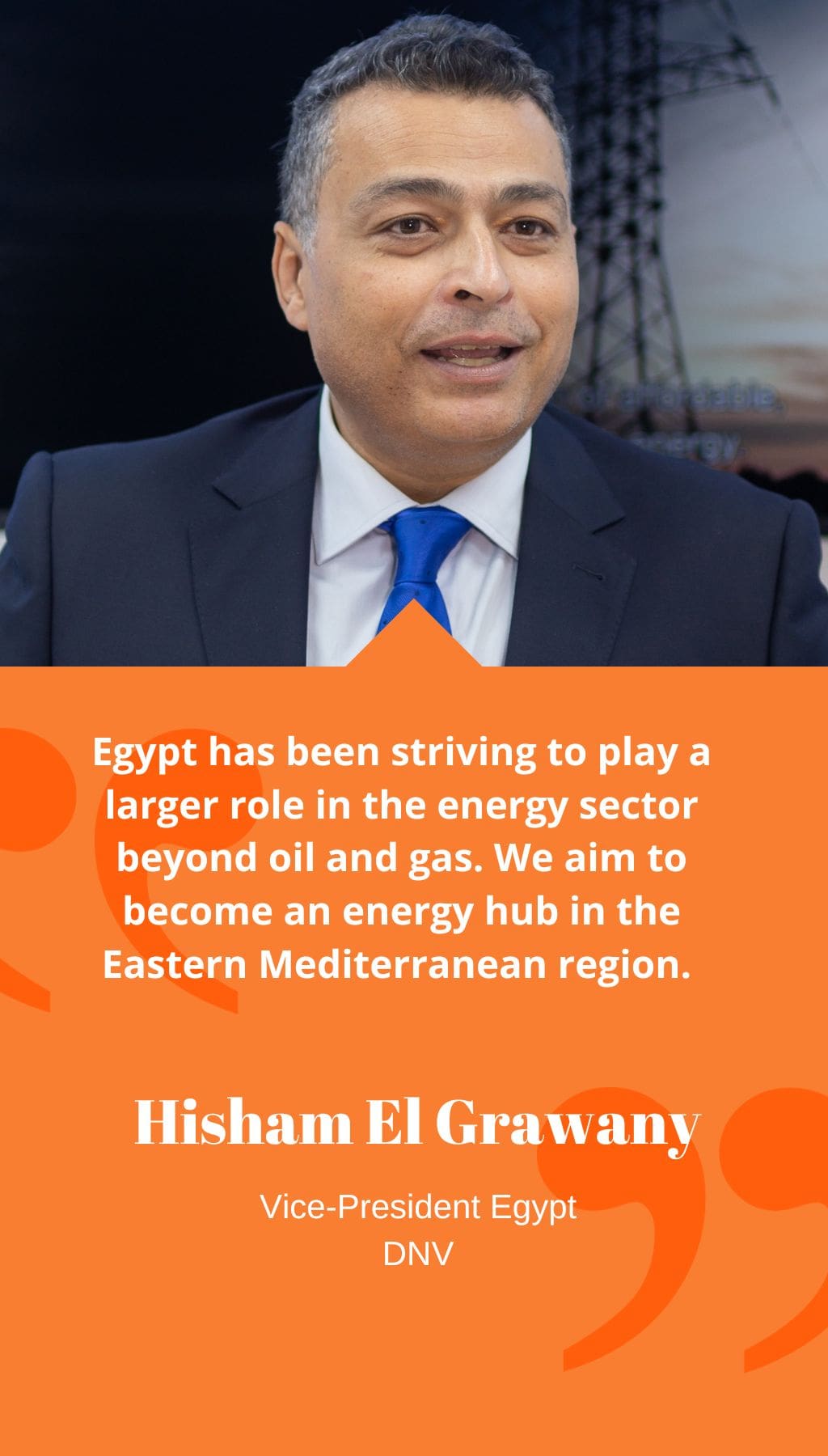
- Egypt | 31 March 2022

How has the Covid-19 pandemic affected activity in Egypt’s energy industry?
The pandemic had a significant impact on Egypt’s energy industry. Many international oil companies (IOCs) decided to scale back their investment plans due to low oil prices. Additionally, the demand for energy decreased as transportation activities reduced. The market is currently cautious about investing until there is more certainty. Egypt faced challenges as it lacks local supply chain manufacturers. However, oil and gas developments started recovering in early 2021 after a slow period in 2020. Projects that were previously put on hold, especially in the Red Sea, saw renewed activity in 2021.
What are your thoughts on the Eastern Mediterranean as an energy hub?
Egypt has been striving to play a larger role in the energy sector beyond oil and gas. We aim to become an energy hub in the Eastern Mediterranean region. There is cooperation between the oil and gas and power generation sectors to achieve this objective. In terms of both energy and geopolitics, we maintain good communication and relations with neighboring countries such as Greece, Cyprus, Israel, Lebanon, and we are moving towards improving relations with Turkey. The East Mediterranean Gas Forum, hosted in Cairo, aims to ensure fair treatment for all participants in the region. Additionally, Egypt has a major petrochemical plant under construction, which will utilize advanced technology for process safety management and the internet of things.
What recent projects has DNV worked on in the region?
DNV has been involved in deepwater operations and gas exploration. We worked with Shell (BG Heritage) and Eni on the Zohr field, providing marine warranty surveyor services. We also served as the independent verification body for the West Delta Deep Marine (WDDM) projects. Our long-standing relationship with Burullus Gas Company, a joint venture between Shell and EGPC, involved being the independent verification body for nine deepwater mega-projects and three onshore mega-projects. In the downstream sector, we were part of the success story of the Egyptian Refining Company (ERC), initially as an independent quality control and assurance body and later taking on project management and construction monitoring activities. We are now transitioning to asset integrity management.
What are you doing to contribute to Egypt’s modernization program?
DNV is collaborating with the Ministry of Petroleum and Mineral Resources and EGPC to support Egypt’s modernization and capacity building plan for the oil and gas sector. We are focused on process safety management and digitalizing the HSE (health, safety, and environment) management process. By digitalizing the entire process value chain, we aim to maximize investments and enhance safety processes through our software, Synergi Life.
How has the merger of DNV’s oil and gas and energy divisions into an energy systems division influenced your strategy?
The merger has expanded our focus on the entire energy supply chain and aligns with our strategy to lead the energy transition globally and at the country level. We have been engaged in renewables activities in Egypt, particularly in wind and solar, prior to the merger. Decarbonization discussions are gaining momentum, and we have been involved in webinars and consultations on topics such as hydrogen development and the transition to gas-powered and electric vehicles. Digitalization, risk studies, and verification for downstream projects are also key areas of our operations. We are actively exploring smart cities and energy conservation trends in collaboration with relevant stakeholders.
What is your outlook on the future of Egypt’s energy industry?
Egypt’s energy industry holds great potential for growth and development. The country’s focus on becoming an energy hub, embracing renewable energy sources, and implementing modernization programs will pave the way for further advancements. Initiatives like the green hydrogen demonstration plant and the expansion of petrochemical complexes present exciting opportunities. With ongoing efforts in digitalization, risk management, and sustainability, Egypt’s energy industry is set to contribute to both economic growth and environmental stewardship.














